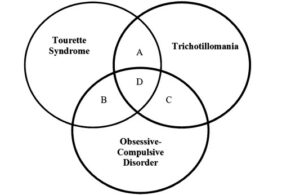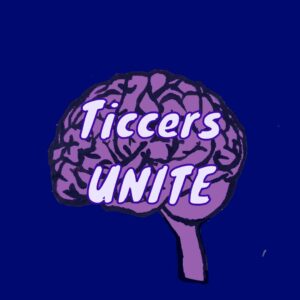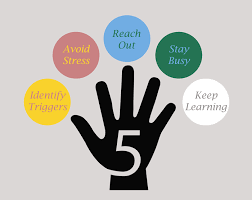Do you feel like you’re constantly being watched? Do you have intrusive thoughts that make it difficult to focus on anything else? If so, you may be struggling with Tourettic OCD. This is a relatively common type of OCD, characterized by both tics and obsessions. In this blog post, we will discuss what is tourettic OCD and how to identify if it is tics or obsessions. We will also share the connection between the two and the most effective ways to overcome these conditions!
Contents
What Is Tourettic OCD?
 Tourettic OCD is a type of OCD that is characterized by both tics and obsessions. Tics are sudden, repetitive movements or vocalizations that can be difficult to control. Obsessions are intrusive, unwanted thoughts, images, or urges that cause anxiety or distress.
Tourettic OCD is a type of OCD that is characterized by both tics and obsessions. Tics are sudden, repetitive movements or vocalizations that can be difficult to control. Obsessions are intrusive, unwanted thoughts, images, or urges that cause anxiety or distress.
People with tourettic OCD often feel like they have to perform certain rituals or behaviors in order to “neutralize” their tics or obsessions. While OCD and Tourette syndrome are both neurological disorders, they are distinct conditions. It’s estimated that only a small percentage of people with Tourette’s also have OCD.
The phenomenon of OCD is quite perplexing. On one hand, you have individuals who can obsess over the most mundane tasks or objects for no apparent reason. Yet, on the other hand, you have people with true fears and phobias who can seemingly overcome them with great ease.
The tics and obsessions are actually two separate things, but they often go hand-in-hand. The tics are the physical or vocal outbursts, while the obsessions are the intrusive thoughts. So, it is important to know about both when seeking treatment.
How To Identify Tics Or Obsessions?
It is difficult to immediately tell the difference between tics and obsessions. There are a few key ways to distinguish tics from obsessions:
Tics
- sudden and brief (less than one second)
- automatic and repetitive
- uncontrollable and irresistible
- stereotyped and invariable
- occur in response to an external trigger or internal urge
Some common examples of tics include:
- blinking
- coughing
- throat clearing
- head jerking
- facial grimacing
Obsessions

- persistent and intrusive
- distressing and anxiety-provoking
- involved with excessive doubt or fear
- related to a need for symmetry or orderliness
- characterized by repetitive mental actions or rituals (i.e., counting, checking, washing)
- may or may not be preceded by an external trigger
Some common examples of obsessions include:
- fear of contamination
- need for symmetry and orderliness
- intrusive thoughts or images
- worry about making mistakes
- excessive doubt
While tics are generally more sudden and brief, obsessions are more persistent and intense. However, both can be disruptive to your life. So it is important to learn how to identify your triggers and manage them effectively.
The tics and obsessions are more likely to occur when you are under stress, tired, or excited. If you have tourettic OCD, it is important to learn how to identify your triggers so that you can avoid them. However, it might be difficult to recognize these alone. So a professional can help you with this process.
How Tourette’s Syndrome And OCD Are Linked?
 Tourette’s syndrome and OCD are both neurological disorders that can cause a variety of tics and obsessions. People with Tourette’s syndrome may have OCD-like symptoms, such as repetitive counting or touching, while people with OCD may have tics, such as blinking or twitching.
Tourette’s syndrome and OCD are both neurological disorders that can cause a variety of tics and obsessions. People with Tourette’s syndrome may have OCD-like symptoms, such as repetitive counting or touching, while people with OCD may have tics, such as blinking or twitching.
Both conditions are believed to share a possible link to the neurotransmitter dopamine. Researchers are still studying this connection, but it is thought that an imbalance of dopamine in the brain may be a contributing factor to both Tourette’s syndrome and OCD.
And, one study suggests, that the tics associated with Tourette’s syndrome may be a result of the brain’s attempt to relieve anxiety or stress. This is because tics tend to increase when a person is under stress, and decrease when they are relaxed. Similarly, people with OCD often report that their symptoms get worse when they are under stress.
So, Tourette’s syndrome and OCD are now recognized as TOCD which is also known as tourettic OCD. This means that people with Tourette’s syndrome may also be at risk for developing OCD. And both can be comorbid situations.
This is why it’s important to seek professional help if you or your child are showing signs of either condition. A mental health professional can help you manage your symptoms and find ways to cope with the stressors in your life.
How Common Is Tourettic OCD?
Tourettic OCD is a relatively rare form of OCD, but it is not unheard of. It is estimated that about 0.75% of the general population suffers from this disorder. That said, it is important to keep in mind that many people with Tourettic OCD do not seek treatment, so the actual prevalence may be higher.
Tourettic OCD most often begins in childhood or adolescence. The average age of onset is 11 years old. However, it is not uncommon for people to first develop symptoms in adulthood. Moreover, it is believed that Tourettic OCD may be underdiagnosed in adults, as many adults with the disorder do not seek treatment.
Therefore, the prevalence of this condition seems to be relatively low. However, it is important to keep in mind that the actual prevalence may be higher, as many people with Tourettic OCD do not seek treatment. But if you are struggling with this condition, know that you are not alone. There are many resources available to help you overcome your tics and obsessions.
What Are The Possible Causes Of Tourettic OCD?
 The exact cause of Tourettic OCD is unknown. However, it is believed to be caused by a combination of genetic and environmental factors. For instance, it is known that Tourettic OCD runs in families. In addition, some research suggests that certain infections may play a role in the development of Tourettic OCD.
The exact cause of Tourettic OCD is unknown. However, it is believed to be caused by a combination of genetic and environmental factors. For instance, it is known that Tourettic OCD runs in families. In addition, some research suggests that certain infections may play a role in the development of Tourettic OCD.
These causes are actually quite similar to the causes of regular OCD. However, there are some unique features of Tourettic OCD that make it different from other forms of OCD.
- First, people with Tourettic OCD often have a history of tics. They can be both voluntary and involuntary tics. For instance, people with Tourettic OCD might blink their eyes excessively or clear their throat often.
- Second, people with Tourettic OCD often have obsessions that are related to their tics. For instance, they might be obsessed with the fear of contamination or the need for symmetry.
- Third, people with Tourettic OCD often have a sudden onset of symptoms. This is in contrast to other forms of OCD, which tend to develop gradually over time.
Overall, the causes of tourettic OCD are still not fully understood. But with proper guidance and professional diagnosis, you can understand your condition and develop a treatment plan that helps you manage your symptoms. If you or someone you know is struggling with Tourettic OCD, please reach out for help. There are many resources available to support you on your journey.
How To Manage It?
The tics and obsessions in tourettic OCD can be distressing and may interfere with daily life. However, there are ways to manage the condition and lessen the symptoms. Here are some tips:
Talk to a therapist
A professional can help you understand your condition and develop a treatment plan. As this type of OCD can be difficult to manage on your own, it is important to get professional help. There are several types of therapists that a therapist can help you with, so be sure to ask what would work best for you. Some common therapies include:
- Cognitive behavioral therapy: It can help you change the way you think about your tics and obsessions. It can also help you develop healthy coping mechanisms.
- Exposure and response prevention therapy: It can help you face your fears and learn how to control your reactions to them.
Take medication
It can help to lessen the symptoms of tourettic OCD. However, it is important to talk to a doctor before starting any medication. Because medications are not a cure, they will not stop the tics or obsessions. They may only help to lessen the symptoms. Also, some medications can have side effects. So, it is important to talk to a doctor about the risks and benefits of taking medication.
Some common examples of medications that are used to treat tourettic OCD include:
- Anxiety medications
- Antidepressants
- Anti-psychotic medications
Avoid triggers
 If certain activities or situations trigger your tics or obsessions, do your best to avoid them. For example, if you have a tic that’s triggered by watching television, limit your TV time or find something else to do when you have the urge to watch. This is easier said than done, but it’s important to try.
If certain activities or situations trigger your tics or obsessions, do your best to avoid them. For example, if you have a tic that’s triggered by watching television, limit your TV time or find something else to do when you have the urge to watch. This is easier said than done, but it’s important to try.
Moreover, to avoid the triggers you first have to be aware of them. Keep a log of when and where your tics occur. This will help you identify any patterns or triggers. Once you know what triggers your tics, you can begin to avoid them.
Get support from your loved ones
Along with professional help, the support of your loved ones can make a big difference. If you have tourettic OCD, tell your friends and family about your condition. Because when you share what you’re dealing with, they can be more understanding and supportive. If you have tics, they may not even notice them after a while. And if you have obsessions, they can help you keep them in perspective.
You must be aware of the benefits of sharing your thoughts with your family and friends. As this can help you in getting the much-needed support. This will also help your family and friends to better understand your condition.
Choose a healthy lifestyle
A healthy lifestyle is all about making small changes in your daily routine that can have a big impact on your overall health and well-being. It’s not about going on a crash diet or exercising for hours every day. Instead, a healthy lifestyle is about making simple changes that you can stick with over time.
One of the best ways to improve your physical and mental health is to eat a healthy diet. Eating nutritious foods helps your body to function at its best and can help to reduce your risk of developing chronic diseases. Focus on eating plenty of fruits, vegetables, whole grains, and lean protein. Limit processed foods, sugary drinks, and saturated fats.
In addition to eating a healthy diet, regular exercise is another important part of a healthy lifestyle. Exercise has numerous health benefits, including reducing your risk of chronic diseases, improving your mental health, and helping you to maintain a healthy weight. Aim to get at least 30 minutes of moderate-intensity aerobic exercise on most days of the week.
Be patient with yourself
 Tourettic OCD is a unique and difficult form of OCD that can be extremely frustrating and challenging to deal with. It is important to be patient with yourself and understand that this is a process that may take some time. There are many helpful resources available, so be sure to seek out support and information from professionals as well as other people who understand what you are going through.
Tourettic OCD is a unique and difficult form of OCD that can be extremely frustrating and challenging to deal with. It is important to be patient with yourself and understand that this is a process that may take some time. There are many helpful resources available, so be sure to seek out support and information from professionals as well as other people who understand what you are going through.
Moreover, you should be consistent with your treatment in order to see the best results. This means that if you are seeing a therapist, be sure to attend all of your appointments and follow through with any homework or exercises that are assigned. If you are taking medication, be sure to take it as prescribed and do not skip doses.
Remember, there is no shame in seeking help and treatment for Tourettic OCD, so do not be afraid to reach out for support. With effort and continuous treatment, you can overcome your tics and obsessions. If you or someone you know is struggling with Tourettic OCD, reach out to help.
Conclusion
To conclude, tourettic OCD is a unique and challenging form of OCD that can be difficult to manage. However, with the right treatment and support, it is possible to overcome tics and obsessions. If you or someone you know is struggling with tourettic OCD, please reach out to a mental health professional for help.
Moreover, you should also know that you are not alone in this battle. There are many others who are fighting the same fight and there is a lot of support available. You can also contact Therapy Mantra for more information and help with this condition.
We have a team of professional therapists who can provide you with the support and guidance you need to recover from this condition. Contact us today to learn more about our services. You can also book an online therapy or download our free OCD treatment app on Android or iOS.


